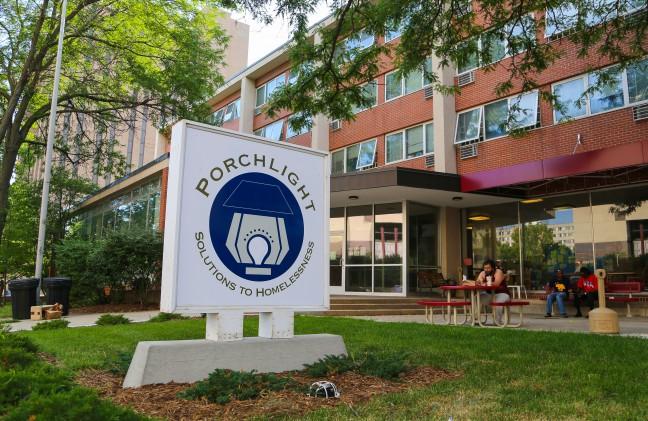Madison stakeholders are coming together to address homelessness in the State Street and downtown entertainment areas by initiating government activity and working with shelters.
Gov. Tony Evers, Wisconsin Housing and Economic Development Authority Executive Director Joaquin Altoro and Wisconsin Interagency Council on Homelessness Director Michael Basford announced Sept. 18 funds will be allocated to projects that help the homeless.
Mayor Satya Rhodes-Conway announced changes in July aimed at increasing the quality of life on State Street, and local officials and organizations are routinely pitching in on the effort. Solutions include installing port-a-potties and allocating lockers for belongings.
But this is just a temporary solution, Deputy Mayor Cameron McLay said. City stakeholders are discussing a longer-term solution with the city government to create a public-private response.
McLay added that those in government really sought to figure out what was necessary to help, but it was difficult.
“It would be premature to even speculate longer-term solutions because complex social issues don’t offer simplistic solutions,” McLay said.
Madison does have some resources available, including shelters.
The Beacon helps over 225 men, women and children per day each year, according to its website.
They are “a one-stop resource center for individuals to connect with other area social service agencies who partner with us,” according to the website. The Beacon has partnerships with more than 27 agencies, such as BadgerCare and Porchlight.
The men’s shelter case manager of Porchlight on North Brooks Street, Glenn Ruiz, said the shelter has many services available. Porchlight has services specifically for men, those who qualify for affordable housing, veterans, and the physically and mentally disabled.
Porchlight also has a street outreach team that involves members seeking out homeless people on the streets and approaching them. This team connects them to a relevant shelter and other services they need.
The police will also directly contact the shelter if they see a homeless person, Ruiz said. The shelter may also contact the Madison Police Department if someone may be a harm to themselves or others.
It’s a collective effort between the Madison Police Department, the shelters and the service providers to help the homeless, Ruiz said.
The shelters provide basic needs such as meals, showers, a phone and a place to sleep temporarily, Ruiz said. Those who come into the shelter work with caseworkers who connect them to necessary resources, such as obtaining an identification card.
Porchlight is open all year, with an in-take process every evening from 5:30 p.m. to 8:30 p.m., Ruiz said. The temporary residents are provided meals, laundry services and showers, and are released at 7:30 a.m. the following morning, but people may make multiple visits.
While at the shelter, the residents meet with case workers who try to assess their needs and recommend services. The workers also help the men find jobs, apply for health insurance and establish medical care.
The goal is to get residents into permanent housing, Ruiz said.
Ruiz said there are four basic barriers that prevent or make it harder for these men to obtain housing. Those barriers include very little or lack of income, poor or lack of housing history, poor or lack of credit score, and background record. Poor literacy or being illiterate, alcohol or drug addiction and mental illness are other factors as well.
There is no wait for obtaining services, but there is a wait in terms of connecting with a case worker and services, Ruiz said.
“It’s a challenge to address everyone efficiently,” he said.
Some people who are made aware of these services choose to not use them and stay on the street, Ruiz said. There is an “optic of homelessness,” meaning that there are people who appear homeless but rather prey on the homeless, such as drug dealers and sex traffickers.
In terms of solutions, Ruiz said more affordable housing needs to be made available. Porchlight has meetings with the county government and the business community about how to help this population.


